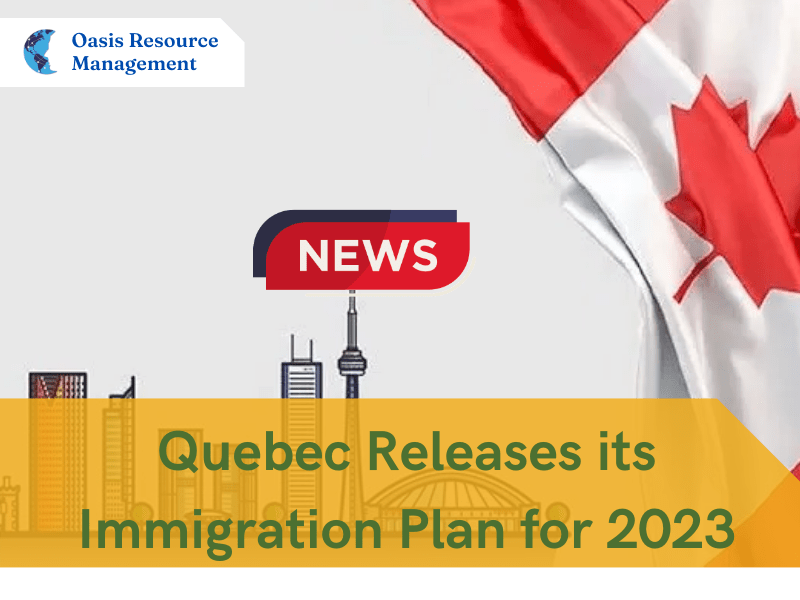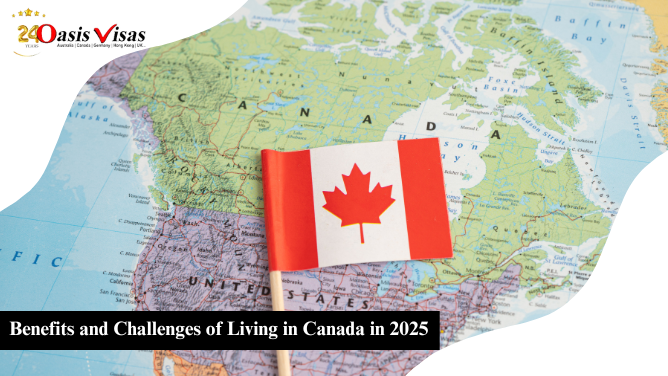
The Quebec Immigration Plan for 2023, which was released on December 8, demonstrates that the Canadian province could admit up to 52,500 new PRs (Permanent Residents) in 2023. This target is accurately the same as the immigration plan for 2022.
The majority of new admissions to Quebec in 2023 will come through the economic immigration programs in Quebec, such as the Quebec Skilled Worker Program (QSWP) and Quebec experience program (PEQ).
The new plan stays true to the targets which were established during the public consultation that was held in the summer of 2019 as part of Quebec Immigration Planning for the 2020-2022 period.
With the highest target of 33,900, the economic category signifies the major proportion of newcomers, more than 65% of planned admissions. In this category, the province of Quebec expects to welcome up to 29,500 skilled workers and up to 4,300 business immigrants. These would include entrepreneurs, investors, and the self-employed.
The remaining 18,100 new PRs are anticipated to arrive through family reunification, refugees, and other immigration programs.
The immigration plan in Quebec is presented each year by the Immigration Department in the province. It summarizes the number of new permanent residents the province is looking to admit in the coming year and the categories in which it will admit them as well. So far, plans have been released summarizing targets for only the coming year. However, a consultation will take place in 2023 in which Quebec will be creating a multi-year plan that will commence in 2024.
Focus on French-speaking Immigrants
The 2023 plan stays close to the one of 2022 as earlier this year, the Coalition Avenir Québec (CAQ) won a second term as the governing party, with a robust majority.
The 2022 plan, which was set out under the leadership of current premier François Legault, targeted a gradual increase in the number of newcomers after decreasing admission targets back in 2019. A 20% decline was introduced that year by the CAQ to boost the selection and francization of newcomers to the province.
The CAQ party’s major pillar is to keep the French language in the Quebec province safe. The new plan focuses on choosing immigrants who already converse in the French language. The Ministry of Immigration, Francization and Integration expect that 79% of economic immigrants will know French in 2023, and 66% of immigrants across all categories as well.
Quebec immigration was a highly debated topic during the provincial election this year. As part of his campaign, Legault committed to letting only 50,000 newcomers into Quebec a year throughout his term. He states this is the largest number of immigrants that could be accommodated by Quebec. That is because it is a challenge to incorporate newcomers into Quebec society, specifically those who need to learn the French language.
Unique Immigration System in Quebec
Quebec is the only Canadian province, which releases a yearly immigration levels plan. Also, it is the only province that has total control of its economic immigration admissions.
Quebec has more self-government over its immigration programs due to the launch of its immigration ministry back in 1968. The province sustained to push for gaining more control over immigration until over two decades later in 1991. The Quebec-Canada Accord gave the province the responsibility for setting its targets for admission.
While Quebec still chooses the skilled workers it looks forward to admitting, immigration remains a shared responsibility between the federal and provincial governments, and IRCC (Immigration, Refugees and Citizenship Canada) has the final decision on all admissions, irrespective of the immigration class.
How to Immigrate to Canada
Anyone who is looking for immigrating to Quebec is required to be approved by the federal and provincial governments. The province chooses skilled immigrants according to its criteria as well as procedures and candidates ought to apply directly to Quebec through one of its immigration programs.
If an applicant meets a program’s criteria and is chosen by the province, they, and any accompanying family members, will receive a Certificat de sélection du Québec (CSQ). Ministère de l’Immigration, de la Francisation et de l’Intégration du Québec issues this document.
Once the applicant has a CSQ they are required to then apply to IRCC for permanent residence. Also, they must pass the required criminality, medical, and security checks.









